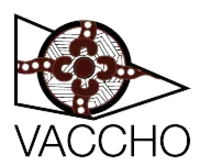
This role has a moderate level of AI exposure. AI can enhance efficiency for some tasks, but this job still relies on human skills and decision-making.
Explore all careersAn Aboriginal Health Worker provides healthcare services to Indigenous communities, conducting screenings and liaising with professionals and elders.
Get qualified to work as an Aboriginal Health Worker with a course recognised across Australia. Speak to a training provider to learn more.

In Australia, a full time Aboriginal Health Worker generally earns $1,050 per week ($54,600 annual salary) before tax. This is a median figure for full-time employees and should be considered a guide only. As you gain more experience you can expect a potentially higher salary than people who are new to the industry.
 Courses.com.au Team
Courses.com.au Team
The number of people working in this sector has increased in recent years. There are currently 1,300 people employed as an Aboriginal Health Worker in Australia compared to 800 five years ago. Aboriginal Health Workers may find work in areas of Australia where Indigenous communities are located.
Source: Australian Government Labour Market Insights
 Courses.com.au Team
Courses.com.au Team
If you’re interested in a career as an Aboriginal Health Worker, you could enrol in a Certificate III in Aboriginal and/or Torres Strait Islander Primary Health Care. This course covers basic health screening and assessments, infection control and working with elders in Aboriginal communities. You could also further your skills with a Certificate IV or Diploma of Aboriginal and/or Torres Strait Islander Primary Health Care or a Certificate IV or Diploma of Aboriginal and/or Torres Strait Islander Primary Health Care Practice.
 Courses.com.au Team
Courses.com.au Team
Browse occupations related to Aboriginal Health Worker



Aboriginal Health Worker courses in Victoria are vital for individuals passionate about making a positive impact on Aboriginal communities and improving health outcomes. These courses equip students with the necessary skills and knowledge to work effectively in a culturally sensitive manner, drawing from both traditional and contemporary healthcare practices. By enrolling in these courses, you can embark on a rewarding career that contributes to the well-being of Aboriginal peoples throughout Victoria, including regions such as Melbourne, Geelong, and Ballarat.
In Victoria, various Registered Training Organisations (RTOs) offer comprehensive Aboriginal Health Worker courses that cover essential topics such as community health, disease prevention, and cultural competence. These training providers are recognised within the industry, ensuring that your education meets professional standards. Whether you are aiming to work within local health services, community organisations, or government bodies, the qualifications obtained through these courses can open the door to numerous job opportunities in the healthcare sector.
Individuals interested in pursuing a career as an Aboriginal Health Worker may also explore a range of related pathways, enhancing your employability in this field. Career options include roles such as Aboriginal Aged Care Worker, Aboriginal Disability Worker, and Aboriginal Community Care Worker. Each of these professions plays a crucial role in supporting the diverse needs of Aboriginal communities, allowing you to specialise in the area that resonates most with your passion. For a more comprehensive understanding of each role, it is essential to investigate the specific courses available tailored to these professions.
Victoria’s Aboriginal Health Worker courses not only provide theoretical knowledge but also foster practical skills through hands-on training and community engagement opportunities. Students have the chance to learn directly from experienced professionals in the field, engage with Aboriginal communities, and understand the unique health challenges they face. This immersive experience is invaluable as it prepares future Aboriginal Health Workers to deliver services that are effective, respectful, and relevant to the communities they serve.